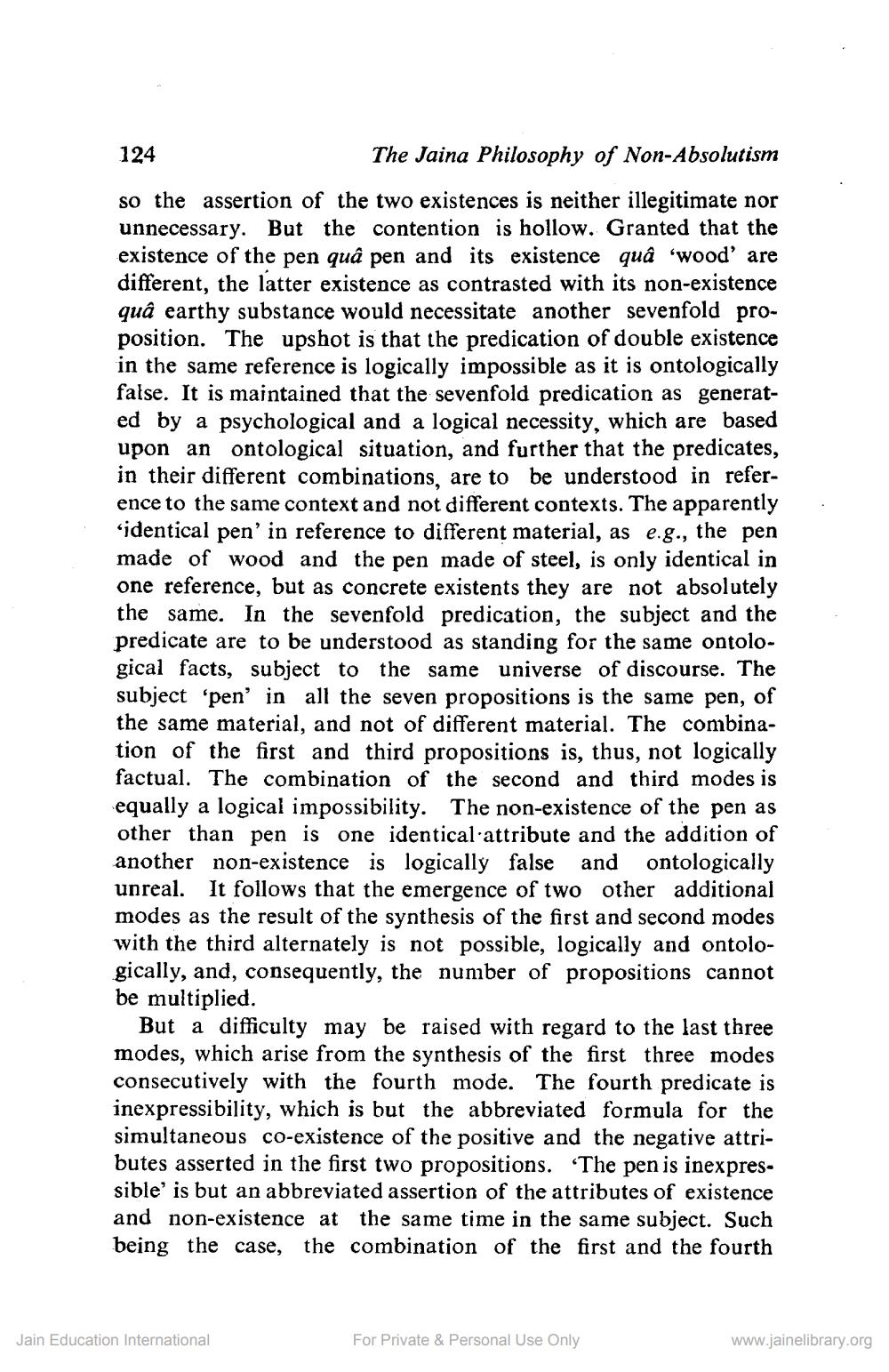________________
124
The Jaina Philosophy of Non-Absolutism
so the assertion of the two existences is neither illegitimate nor unnecessary. But the contention is hollow. Granted that the existence of the pen quâ pen and its existence quâ 'wood' are different, the latter existence as contrasted with its non-existence quâ earthy substance would necessitate another sevenfold proposition. The upshot is that the predication of double existence in the same reference is logically impossible as it is ontologically false. It is maintained that the sevenfold predication as generated by a psychological and a logical necessity, which are based upon an ontological situation, and further that the predicates, in their different combinations, are to be understood in reference to the same context and not different contexts. The apparently 'identical pen' in reference to different material, as e.g., the pen made of wood and the pen made of steel, is only identical in one reference, but as concrete existents they are not absolutely the same. In the sevenfold predication, the subject and the predicate are to be understood as standing for the same ontological facts, subject to the same universe of discourse. The subject 'pen' in all the seven propositions is the same pen, of the same material, and not of different material. The combination of the first and third propositions is, thus, not logically factual. The combination of the second and third modes is equally a logical impossibility. The non-existence of the pen as other than pen is one identical attribute and the addition of another non-existence is logically false and ontologically unreal. It follows that the emergence of two other additional modes as the result of the synthesis of the first and second modes with the third alternately is not possible, logically and ontologically, and, consequently, the number of propositions cannot be multiplied.
But a difficulty may be raised with regard to the last three modes, which arise from the synthesis of the first three modes consecutively with the fourth mode. The fourth predicate is inexpressibility, which is but the abbreviated formula for the simultaneous co-existence of the positive and the negative attributes asserted in the first two propositions. The pen is inexpressible' is but an abbreviated assertion of the attributes of existence and non-existence at the same time in the same subject. Such being the case, the combination of the first and the fourth
Jain Education International
For Private & Personal Use Only
www.jainelibrary.org




